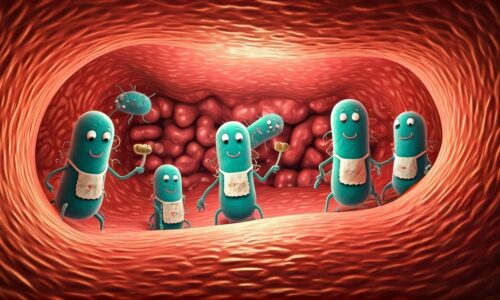Last month, Microbiome Movement returned to Boston for its 8th Drug Development summit. With 2023’s multiple regulatory approvals for C. difficile microbiome treatments, the event set out to platform microbial-based approaches beyond the condition. The event consisted of a three-track agenda divided across “Discovery & Pre-clinical”, “Translational & Clinical”, and “Manufacturing & Process development” tracks respectively. Biose Industrie’s Claire Derlot, Ph.D., joined the expert speaker faculty within the “Manufacturing & Process Development” session to discuss the most pressing challenges in microbiome drug development.
Here are some of Biose Industrie’s talk highlights across the three tracks:
Discovery & Pre-clinical
- Prodigy Biotech is a developmental stage biotechnology company that leverages chicken-derived immunoglobulin-Y to target a range of diseases. Their CEO, Satish Chandran, presented a talk entitled “Editing the Microbiome”. Chandran’s talk covered the company’s platform and disease targets. Their lead program targets alcoholic liver disease. Identifying Enterococcus faecalis as a key species in the development of alcoholic hepatitis, Prodigy’s PRO-AH-001 lead candidate is a polyclonal antibody cocktail which targets Enterococcus faecalis and it’s cytolysin toxin. The efficacy of the product has been demonstrated in various pre-clinical models, including 3D cell-models and animal models. Chandran closed the talk by outlining the company’s future which include a pre-IND meeting with the FDA.
- Axial Therapeutics the biotech targeting neurological diseases and disorders through the modulation of the gut microbiome, presented a talk entitled “AX-5006, a Small Molecule Inhibitor of CsgA Aggregation as a Potential Disease-Modifying Treatment for Parkinson’s Disease”. Becca Senter, Ph.D., Head of Preclinical R&D, opened by highlighting the unmet need for Parkinson’s disease (PD), the 2nd most common neurodegenerative disease in the world. Detailing the rationale behind AX-5006, Becca explained Axial had identified a link between bacterial amyloid production by gut bacteria and PD symptomology in mice models. AX-5006 is a small molecule inhibitor which inhibits the aggregation and expression of the CsgA protein – a protein important to the formation of bacterial amyloid sheets. The drug has improved motor symptoms and slowed disease progression in ASO mouse models of PD and has been well tolerated in other animals. Clinicals for the candidate are planned for 2024.
Translational & Clinical
- Sean Gibbon, PhD, Associate Professor from the Institute for Systems Biology discussed the intersection between systems biology approaches, microbiome analysis and precision health/nutrition to rationally engineer the human gut microbiome. Gibbon began by explaining the interplay between environment, genome, and microbiome results in host phenotype – drug response rates, disease presentation etc. Gibbon highlighted the challenge of analysing this complexity and identified microbiome-produced metabolites as being central to decoding it. Artificial intelligence approaches including machine learning and knowledge graphs were identified as key tools to translate microbiome data into actionable interventions for host health. Gibbons showcased a range of in silico microbiome modelling use-cases including: predicting individual-specific SCFA production profiles, rational design of personalised ecological therapeutics, and estimating engraftment potential of non-indigenous taxa.
Manufacturing & Process Development
- Kevin Roelofs, Associate Director, Strain Process Development for Novome Biotechnologies discussed their journey to improving lyophilization survival in Roelofs opened by explaining the importance of reducing water activity in bacterial cultures for their preservation, contrasting the respective merits of freezing and lyophilisation. Lyophilisation was chosen for Novome Biotechnologies’ live biotherapeutic product for benefits of improved formulation, improved patient experience and preferable storage conditions. However, their initial lyophilisation efforts resulted in low viability. Variable viability testing found differing survivability between supposedly identical strains. An essential gene, pap2, for B. vulgatus lyophilization survival was identified and genetic methods were applied to improve survival outcomes of their strains. Roelofs closed by describing how Novome Biotechnologies plans to use pap2 repaired strains for their process scale-up – their lab-scale model predicts improved performance in 50L manufacturing.
- Biose’s Claire Derlot, Ph.D., head of programs described the CMC challenges behind developing live biotherapeutic products. Derlot underlined Biose’s continued investment in its manufacturing capabilities, with over 80M EUR invested by 2024. Biose’s range of expertise was showcased across the entirety of the LBP development pipeline, beginning with WGS data analysis for strain identification all the way to commercial manufacturing. Derlot specifically underlined Biose’s encapsulation research including its delayed release evaluation and gastro-resistance evaluation. The presentation finished by providing an overview of Biose’s capabilities and know-how. Biose can characterize, scale-up and manufacture a variety of different strains, work with all types of bacteria (Aerobic, Anaerobic, GMO, Non-GMO, spore-forming), and can deliver bacterial products in a variety of forms (capsules, tablets, sachets, creams and oils) – all at a GMP level.
Conclusion
The 8th Microbiome Movement: Drug Development was an engaging conference, which Biose Industrie were thrilled to support and participate in. Biose look forward to the next event to continue sharing our expertise with the field.



